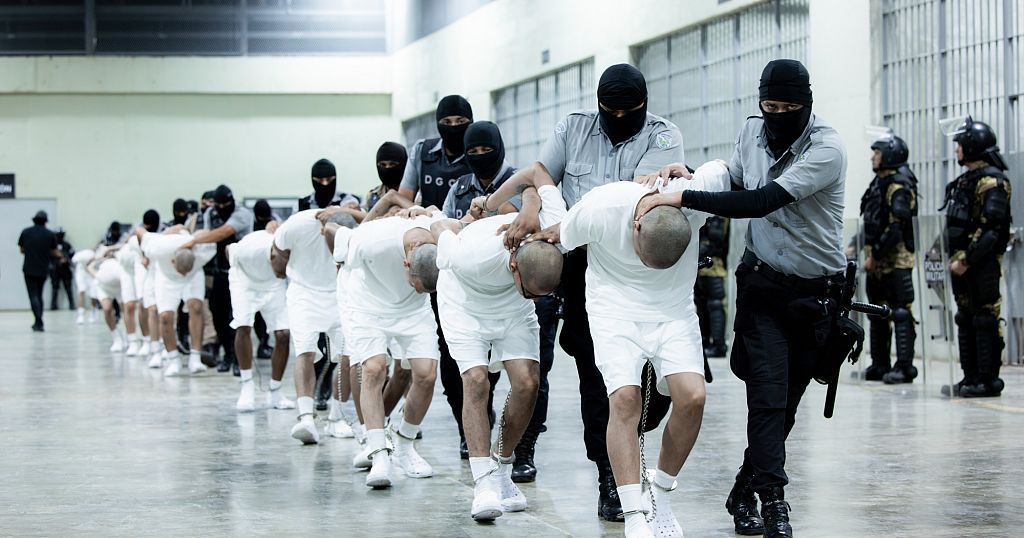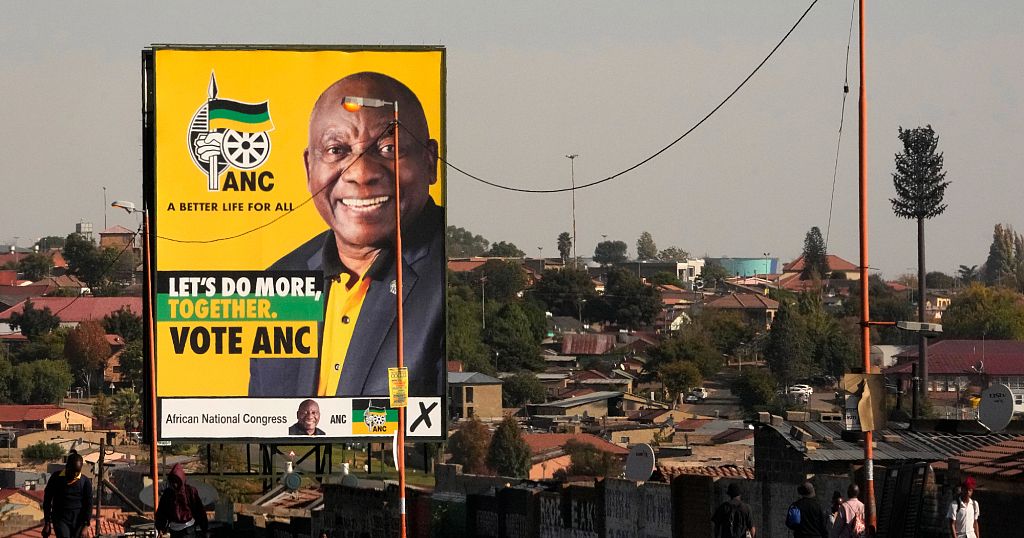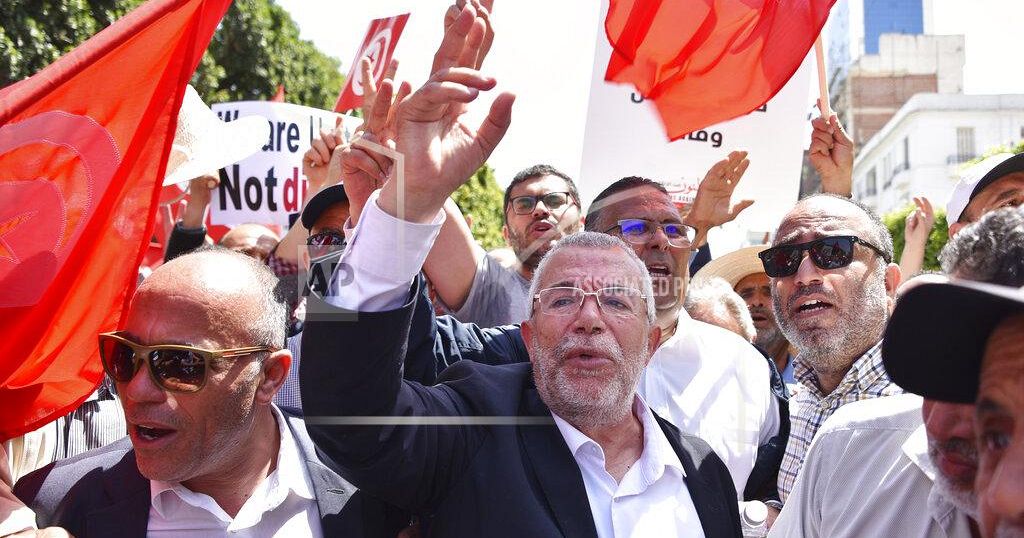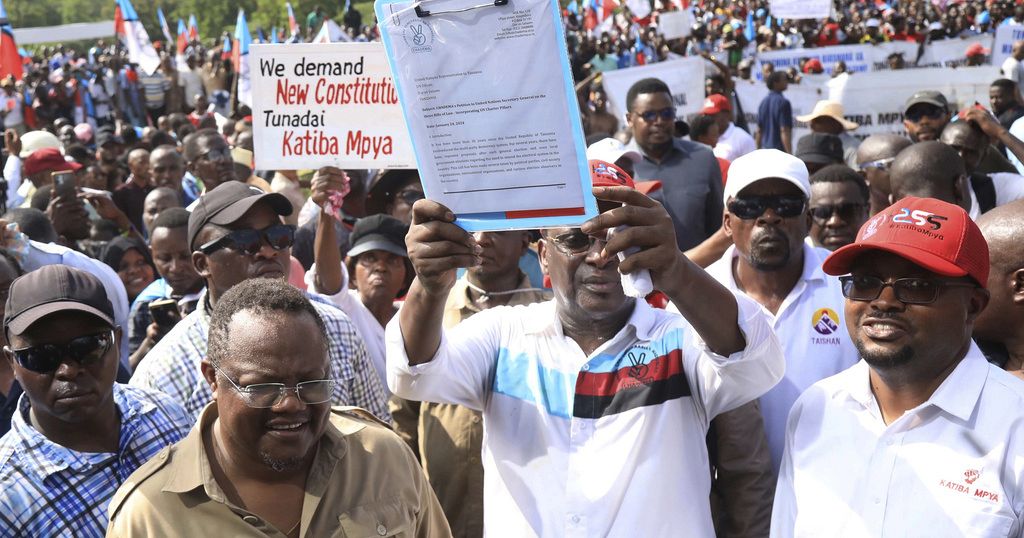Africa
US deports hundreds of immigrants despite court order barring the move

The Trump administration has transferred hundreds of immigrants to El Salvador even as a federal judge issued an order temporarily barring the deportations under an 18th-century wartime declaration targeting Venezuelan gang members, officials said Sunday. Flights were in the air at the time of the ruling.
U.S. District Judge James E. Boasberg issued an order Saturday temporarily blocking the deportations, but lawyers told him there were already two planes with immigrants in the air — one headed for El Salvador, the other for Honduras. Boasberg verbally ordered the planes be turned around, but they were not and he did not include the directive in his written order.
White House press secretary Karoline Leavitt, in a statement Sunday, responded to speculation about whether the administration was flouting court orders: “The administration did not ‘refuse to comply’ with a court order. The order, which had no lawful basis, was issued after terrorist TdA aliens had already been removed from U.S. territory.”
The acronym refers to the Tren de Aragua gang, which Trump targeted in his unusual proclamation that was released Saturday
In a court filing Sunday, the Department of Justice, which has appealed Boasberg’s decision, said it would not use the Trump proclamation he blocked for further deportations if his decision is not overturned.
Trump sidestepped a question over whether his administration violated a court order while speaking to reporters aboard Air Force One on Sunday evening.
“I don’t know. You have to speak to the lawyers about that,” he said, although he defended the deportations. “I can tell you this. These were bad people.”
Asked about invoking presidential powers used in times of war, Trump said, “This is a time of war,” describing the influx of criminal migrants as “an invasion.”
Trump’s allies were gleeful over the results.
“Oopsie…Too late,” Salvadoran President Nayib Bukele, who agreed to house about 300 immigrants for a year for $6 million in his country’s prisons, wrote on the social media site X above an article about Boasberg’s ruling. That post was recirculated by White House communications director Steven Cheung.
Secretary of State Marco Rubio, who negotiated an earlier deal with Bukele to house immigrants, posted on the site: “We sent over 250 alien enemy members of Tren de Aragua which El Salvador has agreed to hold in their very good jails at a fair price that will also save our taxpayer dollars.”
Steve Vladeck, a professor at the Georgetown University Law Center, said that Boasberg’s verbal directive to turn around the planes was not technically part of his final order but that the Trump administration clearly violated the “spirit” of it.
“This just incentivizes future courts to be hyper-specific in their orders and not give the government any wiggle room,” Vladeck said.
The immigrants were deported after Trump declared the Alien Enemies Act of 1798, which has been used only three times in U.S. history.
The law, invoked during the War of 1812 and World Wars I and II, requires a president to declare the United States is at war, giving him extraordinary powers to detain or remove foreigners who otherwise would have protections under immigration or criminal laws. It was last used to justify the detention of Japanese-American civilians during World War II.
Venezuela’s government in a statement Sunday rejected the use of Trump’s declaration of the law, characterizing it as evocative of “the darkest episodes in human history, from slavery to the horror of the Nazi concentration camps.”
Tren de Aragua originated in an infamously lawless prison in the central state of Aragua and accompanied an exodus of millions of Venezuelans, the overwhelming majority of whom were seeking better living conditions after their nation’s economy came undone during the past decade. Trump seized on the gang during his campaign to paint misleading pictures of communities that he contended were “taken over” by what were a handful of lawbreakers.
The Trump administration has not identified the immigrants deported, provided any evidence they are members of Tren de Aragua or that they committed any crimes in the United States. It also sent two top members of the Salvadoran MS-13 gang to El Salvador who had been arrested in the United States.
Video released by El Salvador’s government Sunday showed men exiting airplanes onto an airport tarmac lined by officers in riot gear. The men, who had their hands and ankles shackled, struggled to walk as officers pushed their heads down to have them bend down at the waist.
The video also showed the men being transported to prison in a large convoy of buses guarded by police and military vehicles and at least one helicopter. The men were shown kneeling on the ground as their heads were shaved before they changed into the prison’s all-white uniform — knee-length shorts, T-shirt, socks and rubber clogs — and placed in cells.
The immigrants were taken to the notorious CECOT facility, the centerpiece of Bukele’s push to pacify his once violence-wracked country through tough police measures and limits on basic rights
The Trump administration said the president signed the proclamation contending Tren de Aragua was invading the United States on Friday night but didn’t announce it until Saturday afternoon. Immigration lawyers said that, late Friday, they noticed Venezuelans who otherwise couldn’t be deported under immigration law being moved to Texas for deportation flights. They began to file lawsuits to halt the transfers.
“Any Venezuelan citizen in the US may be removed on pretext of belonging to Tren de Aragua, with no chance at defense,” Adam Isacson of the Washington Office for Latin America, a human rights group, warned on X.
The litigation that led to the hold on deportations was filed on behalf of five Venezuelans held in Texas who lawyers said were concerned they’d be falsely accused of being members of the gang. Once the act is invoked, they warned, Trump could simply declare anyone a Tren de Aragua member and remove them from the country.
Boasberg barred those Venezuelans’ deportations Saturday morning when the suit was filed, but only broadened it to all people in federal custody who could be targeted by the act after his afternoon hearing. He noted that the law has never before been used outside of a congressionally declared war and that plaintiffs may successfully argue Trump exceeded his legal authority in invoking it.
The bar on deportations stands for up to 14 days and the immigrants will remain in federal custody during that time. Boasberg has scheduled a hearing on Friday to hear additional arguments in the case.
He said he had to act because the immigrants whose deportations may violate the U.S. Constitution deserved a chance to have their pleas heard in court.
“Once they’re out of the country,” Boasberg said, “there’s little I could do.”
Africa
Unprecedented trial for apartheid atrocities opens in South Africa

A significant step by South Africa’s legal system in confronting the atrocities of the country’s dark political past.
A judge this week approved the trial of two apartheid-era police officers for their involvement in the 1982 assassination of three student activists.
The prosecution is unprecedented. Until now, no individual had been held accountable for the crime of apartheid.
The case centers around three young freedome fighters killed in an explosion in 1982. The victims were part of a resistance movement opposed to the apartheid regime which enforced White-only rule and domination over the Black majority.
Experts say the trial could open the door for others.
Also this week, South Africa reopened an investigation into the death Albert Luthuli, a former president of the African National Congress (ANC) and Nobel Peace Prize laureate, who was killed in 1967.
The prosecuting authority seeks to have the findings of previous inquests into Luthuli overturned.
The authorities at the time had concluded that Luthuli’s death the result of an accident.
The development comes more than 30 years since South Africa became a democracy and after a Truth commission unearted numerous atrocities.
Africa
Tunisia jails opponents, critics of President Saied

Tunisia on Friday handed opponents of President Kais Saied lengthy jail terms after convicting them of plotting against state security.
Issam Chebbi and Jawhar Ben Mbarek of the opposition National Salvation Front coalition, as well as lawyer Ridha Belhaj and activist Chaima Issa, were sentenced to 18 years behind bars, their lawyer said.
Businessman Kamel Eltaief received the harshest penalty of 66 years in prison.
They are among forty people, including high-profile politicians, businessmen and journalists, who who were being prosecuted on security and terrorism charges.
Critics say the charges lacked merit, and only served to consolidate Saied’s power grab.
The president won re-election virtually unchallenged last year after the jailing or disqualification on flimsy grounds of his opponents.
Saied has ruled mostly by decree since dismissing parliament in 2022 and promulgating a revised constitution giving himself wideranging powers in 2023.
Africa
Tanzania opposition says jailed leader not seen by family, lawyers

Tanzania’s main opposition party said it had failed to get access to its leader who is in detention on treason charges.
CHADEMA said Friday that the family and lawyers of Tundu Lissu had failed to see him at a Dar es salaam jail where he had been kept since his arrest on April 9.
In a statement, the party said it held the Tanzanian government and Prisons Service responsible ble for Lissu’s safety.
The Prisons Service quickly denied that Lissu had been moved from jail.
In a statement, the agency dismissed CHADEMA’s concerns as misinformation.
“We would like to inform the public that Tundu Lissu is safe and he is still detained at Keko Prison in Dar es Salaam according to the country’s laws and procedures,” the Service said in a statement.
Lissu came second in Tanzania’s 2020 presidential election. Last week, he was arrested and later charged with treason after a speech demanding election reforms.
Prosecutors said the speech called for an uprising.
With another presidential vote on the horizon, critics say President Samia Suluhu Hassan’s government has ramped repression against the opposition.
This week, the election commission banned CHADEMA from taking part in elections after the party refused to sign a document pledging to obey the commission’s orders.
-

 Education1 day ago
Education1 day agoHarvard’s battle with the Trump administration is creating a thorny financial situation
-

 Lifestyle1 day ago
Lifestyle1 day agoFans of Superman relate to comic’s religious and ethical themes
-

 Lifestyle1 day ago
Lifestyle1 day agoSweets from the sky! A helicopter marshmallow drop thrills kids in suburban Detroit
-

 Sports1 day ago
Sports1 day agoAaron Rodgers ‘not holding anybody hostage’ as he decides his future, retirement a possibility
-

 Conflict Zones1 day ago
Conflict Zones1 day agoTrump says US may ‘pass’ on helping end war if Russia, Ukraine resist deal | Russia-Ukraine war News
-

 Africa1 day ago
Africa1 day agoTrump administration plans to shut down nearly 30 U.S. embassies — over half in Africa
-

 Europe2 days ago
Europe2 days agoLive updates: Trump news, Ukraine peace talks, US immigration, tariffs and university funding
-

 Sports2 days ago
Sports2 days agoNY Rangers’ Panarin, MSG reportedly made settlement payments after employee made sexual assault allegations



